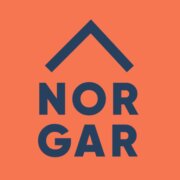Best ADR Mediation & Arbitration Lawyers in Lier
Share your needs with us, get contacted by law firms.
Free. Takes 2 min.
List of the best lawyers in Lier, Norway
About ADR Mediation & Arbitration Law in Lier, Norway
Alternative Dispute Resolution (ADR) refers to methods used to resolve disputes outside of traditional court proceedings. In Lier, Norway - as in the rest of the country - ADR primarily includes mediation and arbitration. These processes provide parties with a private, often faster, and more cost-effective way to settle disagreements. Mediation involves a neutral third party who helps both sides reach a mutually acceptable agreement, whereas arbitration is a process where an arbitrator makes a binding decision on the dispute. ADR is widely encouraged in Norway as an efficient means of resolving both commercial and civil disputes, often preferred over litigation in the public courts.
Why You May Need a Lawyer
Seeking legal assistance in ADR mediation or arbitration can be beneficial in several situations:
- You are involved in a commercial, family, employment, or contract dispute and wish to avoid lengthy court proceedings
- You need help understanding your rights and obligations in a proposed mediation or arbitration
- You wish to ensure any settlement or arbitration agreement is legally sound and enforceable
- You want guidance on whether to pursue mediation, arbitration, or litigation for your specific situation
- You need representation during mediation or arbitration sessions to protect your interests
- You are facing enforcement issues related to an arbitration award or mediated settlement
- You have questions about confidentiality and the binding nature of ADR processes
A lawyer with experience in ADR helps clarify the process, advocates on your behalf, and ensures your legal rights are safeguarded throughout.
Local Laws Overview
In Lier, ADR is governed by Norwegian national laws, such as the Arbitration Act (2004) and the Mediation Act (2012). These laws establish the framework for how disputes can be settled outside of court, ensuring both fairness and legal enforceability:
- Mediation is generally voluntary, and agreements reached are only binding if both parties formally agree
- Arbitration decisions, known as awards, are legally binding and enforceable like court judgments
- Parties to a contract can agree in advance to resolve future disputes through mediation or arbitration
- Certain disputes, especially involving children’s welfare or criminal cases, may not be eligible for ADR
- Confidentiality is protected, so details of the case are not made public as they might be in court
- ADR services in Lier are often provided by organizations approved by the Ministry of Justice, such as public mediation boards or private arbitration institutes
Local mediators and arbitrators may follow additional guidelines or best practices, adapting procedures to suit Lier’s community context.
Frequently Asked Questions
What is the difference between mediation and arbitration?
Mediation is a non-binding process that helps parties voluntarily reach an agreement with the assistance of a neutral mediator. Arbitration is a more formal process where an arbitrator hears both sides and makes a binding decision.
Is mediation or arbitration mandatory in Lier?
Most ADR processes are voluntary, but sometimes contracts require parties to attempt mediation or arbitration before going to court. In family matters, courts may recommend mediation before litigation.
Are ADR agreements legally binding in Norway?
A mediated agreement is binding if both parties sign it. An arbitral award is binding and can be enforced by law, similar to a court judgment.
Can I have a lawyer present during ADR sessions?
Yes, you have the right to be represented by a lawyer during mediation or arbitration to receive legal advice and advocacy.
What kinds of disputes can be resolved through ADR in Lier?
Most civil and commercial disputes, such as contract issues, family law matters, real estate conflicts, and consumer disputes, can be addressed through ADR. However, some criminal and public law matters are excluded.
How long does the ADR process typically take?
While time frames vary, mediation sessions may resolve disputes within weeks or months, while arbitration can take a few months depending on complexity - generally faster than court cases.
How private are mediation and arbitration in Norway?
Both processes are confidential by law. Information disclosed during ADR typically cannot be shared or used outside the process, protecting the privacy of those involved.
Who pays for ADR services?
Costs are usually shared equally unless otherwise agreed. Fees can vary, but ADR often costs less than litigation.
What happens if an arbitration award is not honored?
If one party does not comply, the other can request enforcement through the local enforcement authority, which treats the award similar to a court judgment.
Can I appeal an arbitration decision?
Arbitration decisions are final and can only be challenged in court under specific circumstances, such as procedural errors or if the arbitrator exceeded their authority.
Additional Resources
If you need more information or assistance, the following resources and organizations can help:
- Lier Municipality’s Public Mediation Board - offers guidance on local ADR processes
- The Norwegian Bar Association - provides directories for qualified lawyers and mediators
- The Norwegian Arbitration and Dispute Resolution Institute - offers information on commercial arbitration
- The Norwegian Courts Administration - outlines ADR options and the legal framework
- Ministry of Justice and Public Security - publishes up-to-date information on ADR laws and practices
Next Steps
If you are considering ADR in Lier, Norway, or are facing a dispute, consider the following steps:
- Assess whether mediation or arbitration suits your situation and the type of dispute
- Consult with an experienced lawyer to discuss your options and legal rights
- Gather any relevant contracts, correspondence, or evidence related to the dispute
- Contact local ADR providers or mediation boards to understand the procedures and costs
- If you decide to proceed, ensure all agreements and outcomes are documented in writing and, if needed, reviewed by your lawyer
Navigating the ADR process with legal assistance can provide peace of mind and increase the likelihood of a fair, enforceable resolution.
Lawzana helps you find the best lawyers and law firms in Lier through a curated and pre-screened list of qualified legal professionals. Our platform offers rankings and detailed profiles of attorneys and law firms, allowing you to compare based on practice areas, including ADR Mediation & Arbitration , experience, and client feedback.
Each profile includes a description of the firm's areas of practice, client reviews, team members and partners, year of establishment, spoken languages, office locations, contact information, social media presence, and any published articles or resources. Most firms on our platform speak English and are experienced in both local and international legal matters.
Get a quote from top-rated law firms in Lier, Norway — quickly, securely, and without unnecessary hassle.
Disclaimer:
The information provided on this page is for general informational purposes only and does not constitute legal advice. While we strive to ensure the accuracy and relevance of the content, legal information may change over time, and interpretations of the law can vary. You should always consult with a qualified legal professional for advice specific to your situation.
We disclaim all liability for actions taken or not taken based on the content of this page. If you believe any information is incorrect or outdated, please contact us, and we will review and update it where appropriate.









